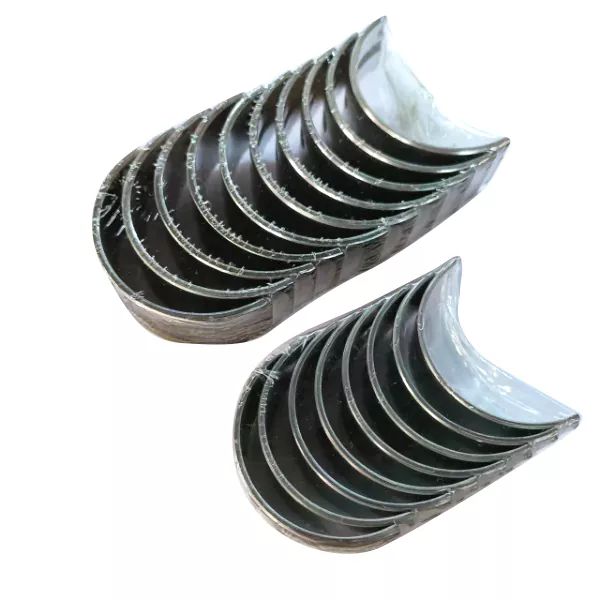Automotive Engine Bearings: The Unsung Heroes of Engine Performance
2025-06-18
When it comes to the heart of your vehicle—the engine—every component plays a critical role in ensuring smooth and efficient operation. Among these, automotive engine bearings are often overlooked but are absolutely essential for the engine’s longevity and performance.
In this blog, we’ll explore what engine bearings are, their functions, types, and why maintaining them is crucial for your vehicle’s health.

What Are Automotive Engine Bearings?
Engine bearings are specialized components that support the rotating parts of an engine, such as the crankshaft and camshaft. They provide a smooth surface for these moving parts to rotate against, reducing friction and wear. By doing so, engine bearings help maintain proper alignment and ensure efficient power transmission.
Types of Engine Bearings
Main Bearings: Support the crankshaft and allow it to rotate smoothly inside the engine block.
Rod Bearings: Located between the connecting rods and crankshaft journals, these bearings handle the up-and-down motion of the pistons.
Camshaft Bearings: Support the camshaft, which controls the opening and closing of engine valves.
Thrust Bearings: Control the axial movement of the crankshaft to prevent excessive end play.
Why Are Engine Bearings Important?
Reduce Friction: Bearings minimize metal-to-metal contact, preventing premature wear and overheating.
Absorb Loads: They handle the immense pressure and loads generated during engine operation.
Ensure Smooth Rotation: Properly functioning bearings keep engine parts rotating smoothly, enhancing efficiency.
Prevent Engine Damage: Worn or damaged bearings can cause knocking, loss of oil pressure, and catastrophic engine failure.
Signs of Worn Engine Bearings
Unusual knocking or rumbling noises from the engine.
Low oil pressure warnings on the dashboard.
Excessive engine vibrations.
Metal shavings in the engine oil.
Poor engine performance or overheating.
Tips for Maintaining Engine Bearings
Regular Oil Changes: Clean, high-quality engine oil lubricates bearings and prevents premature wear.
Use Correct Oil Grade: Always use the oil grade recommended by the vehicle manufacturer.
Monitor Oil Pressure: Keep an eye on oil pressure gauges and warning lights.
Avoid Engine Overheating: Excessive heat can damage bearings and other engine parts.
Professional Inspection: Have your engine inspected regularly by a qualified mechanic, especially if you notice unusual noises or performance issues.
Choosing Quality Engine Bearings
When replacing engine bearings, quality matters. High-grade materials and precision manufacturing ensure durability and optimal performance. OEM (Original Equipment Manufacturer) or reputable aftermarket bearings are recommended for best results.
Final Thoughts
Automotive engine bearings may be small components, but their impact on engine health is enormous. Proper maintenance and timely replacement of bearings can save you from costly repairs and keep your engine running smoothly for years.
If you’re experiencing engine noises or suspect bearing wear, don’t wait—consult a professional and protect your engine investment.


